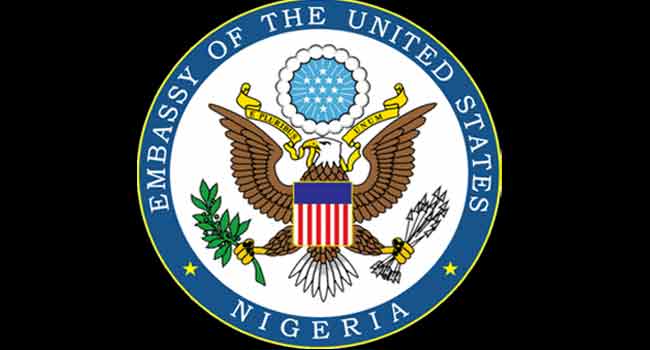
The Government of the United States has directed its non-emergency staff to immediately depart from Nigeria over fear of a possible terror attack in the Nigerian capital city, Abuja.
This order came barely three days after US authorities warned that there was an elevated risk of terror attacks in Nigeria, especially in Abuja.
It noted that as a result of that, the U.S. Embassies in the country will offer reduced services in the country until further notice.
The security advisory issued by the U.S. Mission said, “There is an elevated risk of terror attacks in Nigeria, specifically in Abuja. Targets may include but are not limited to, government buildings, places of worship, schools, markets, shopping malls, hotels, bars, restaurants, athletic gatherings, transport terminals, law enforcement facilities, and international organizations. The U.S. Embassy will offer reduced services until further notice.”
It advised American citizens to avoid all non-essential travel and movement, among others.
The United Kingdom government also warned its citizens in Nigeria to stay alert due to an “increased threat of terrorist attack in Abuja.”
“Attacks could be indiscriminate and could affect western interests, as well as places visited by tourists,” it said.
According to Reuters, the United State Government further authorised that the United States non-emergency government employees and their families should leave the country as a result of heightened risk of terrorist attacks in Nigeria.
“The U.S. Embassy Abuja continues to have limited ability to provide emergency assistance to U.S. citizens in Nigeria,” the State Department reportedly said.
Nigeria has one of the highest terrorism threat levels in the world. Despite a general decrease in terror-related deaths, the country recently recorded the ninth highest number of people who died in terrorist attacks worldwide, after Afghanistan. Several militant groups are active in Nigeria, leading to attacks on both civilian and military targets.
Boko Haram is by far the deadliest, mostly active in the north of the country. Certain deaths have also been attributed to Fulani extremists, while further violent outcomes have been characterising conflicts among other herdsmen, farmers and ethnic groups.
